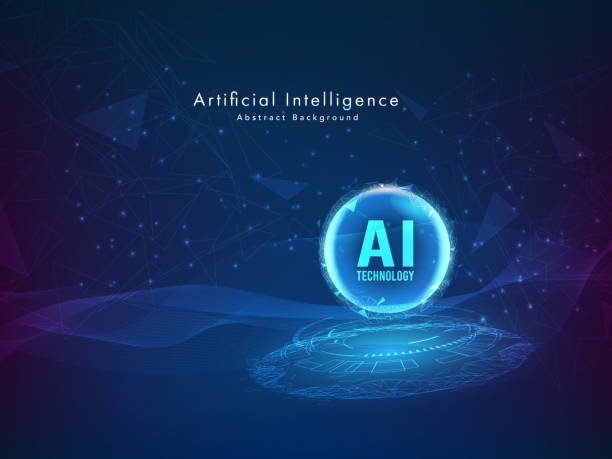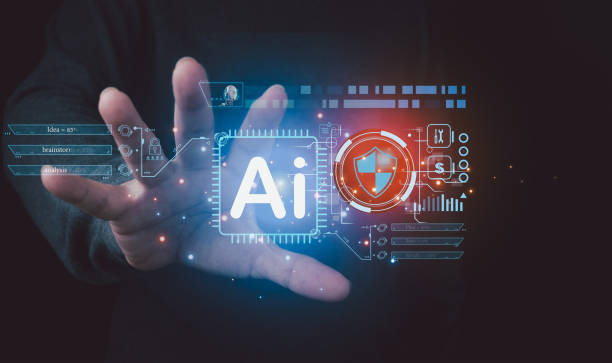What is an Artificial Intelligence Robot? A Comprehensive Definition
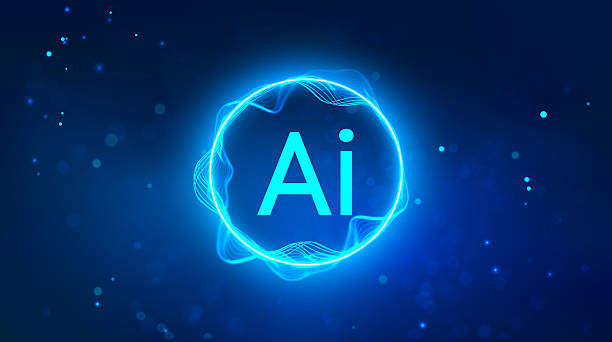
An artificial intelligence robot is a combination of two important and popular fields in today’s technology world: artificial intelligence and robotics.
Simply put, an artificial intelligence robot is a machine that, using artificial intelligence and machine learning algorithms, is capable of performing tasks that typically require human intelligence.
These tasks can include pattern recognition, decision-making, problem-solving, understanding natural language, and learning from experiences.
By analyzing existing data and information, artificial intelligence robots can automatically improve their performance and operate more effectively in various environments.
These robots have applications in various industries such as manufacturing, healthcare, customer service, and logistics.
In other words, an artificial intelligence robot is a physical or virtual machine that uses artificial intelligence to understand, reason, learn, and interact with its surrounding environment.
These robots can perform a variety of tasks, from simple and repetitive tasks like assembling parts in a factory to more complex tasks like diagnosing diseases or driving cars.
The development of artificial intelligence robots has created a major transformation in industry and daily life, and they are expected to play a more prominent role in societies in the future. Using an intelligent agent is very important in an AI robot.
Are you concerned about the low conversion rate of your online store and not achieving your desired sales?
Rasaweb is your specialized solution for having a successful online store.
✅ Significant increase in conversion rate and sales
✅ Professional and user-friendly design to satisfy customers
⚡ Ready for a transformation in online sales? Get free consultation!
The Main Components of an Artificial Intelligence Robot
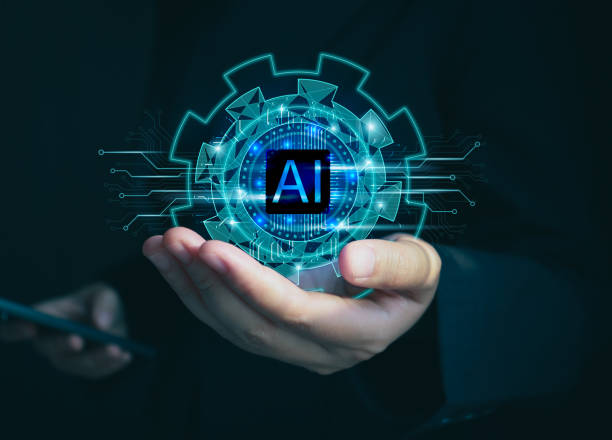
An artificial intelligence robot consists of several main components, each of which plays an important role in its overall performance.
These components include sensors, processors, actuators, and artificial intelligence algorithms.
Sensors are responsible for collecting information from the surrounding environment.
This information can include images, sounds, temperature, pressure, and other sensory data.
Processors are responsible for processing this information and making decisions.
Actuators are responsible for performing physical actions, such as movement, manipulation of objects, or sound production.
Artificial intelligence algorithms are the brains of the artificial intelligence robot and are responsible for reasoning, learning, and making decisions based on the collected information.
In short, an artificial intelligence robot uses sensors to collect information from the environment, processes this information using processors and artificial intelligence algorithms, and performs the necessary actions using actuators.
The interaction and coordination between these components enables the artificial intelligence robot to perform complex and diverse tasks.
IBM is one of the active companies in the field of artificial intelligence.
Applications of Artificial Intelligence Robots in Various Industries
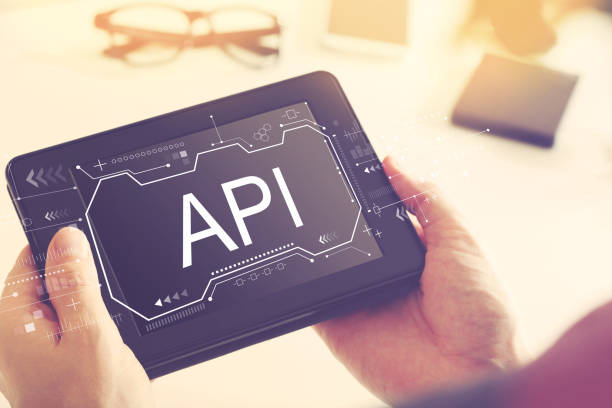
Artificial intelligence robots have wide applications in various industries and are transforming the way things are done.
In the manufacturing industry, artificial intelligence robots can perform repetitive and dangerous tasks, improve product quality, and reduce costs.
In the healthcare industry, artificial intelligence robots can assist doctors in diagnosing diseases, perform complex surgeries, and improve patient care.
In the customer service industry, artificial intelligence robots can answer customer questions, solve their problems, and provide personalized services.
In the logistics industry, artificial intelligence robots can manage warehouses, deliver packages, and optimize the supply chain.
These applications are just examples of the high potential of artificial intelligence robots.
With the advancement of technology, the applications of artificial intelligence robots in various industries are expected to increase and their role in daily life will become more prominent.
Here is a table that shows some of the applications of artificial intelligence robots in various industries:
| Industry | Application | Advantages |
|---|---|---|
| Manufacturing | Parts assembly, quality inspection, packaging | Increased speed, reduced errors, reduced costs |
| Healthcare | Disease diagnosis, surgery, patient care | Higher accuracy, faster recovery, reduced risk |
| Customer Service | Answering questions, solving problems, providing personalized services | 24/7 availability, fast response, improved customer satisfaction |
| Logistics | Warehouse management, package delivery, supply chain optimization | Reduced costs, increased speed, improved efficiency |
Advantages and Disadvantages of Using Artificial Intelligence Robots
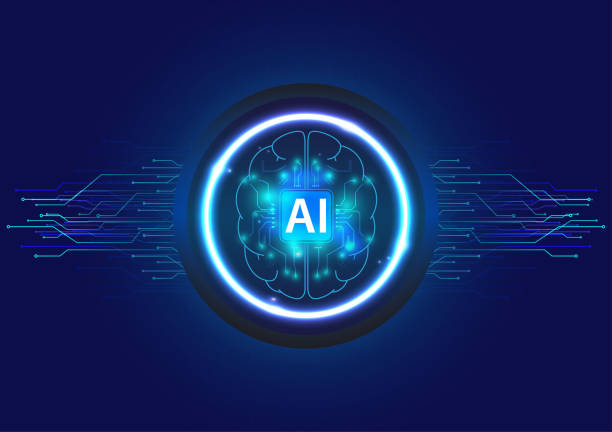
The use of artificial intelligence robots has many advantages, including increased productivity, reduced costs, improved quality, increased safety, and better service.
Artificial intelligence robots can perform tasks faster and more accurately than humans, without the need for rest or leave.
Also, artificial intelligence robots can be used in dangerous and unfavorable environments that are not suitable for humans.
However, the use of artificial intelligence robots also has disadvantages, including high implementation costs, the need for technical expertise, ethical and social concerns, and the potential for job loss by humans.
It should be noted that artificial intelligence robots are not a complete replacement for humans, but rather a tool that can help humans perform their tasks.
To make optimal use of artificial intelligence robots, attention should be paid to their advantages and disadvantages, and an appropriate strategy should be considered for their implementation.
AI robots can help humans in many different fields.
For more information, you can visit the Robotics Association website.
How much does losing business leads due to an unprofessional website cost you? Solve this problem forever with a professional company website design by Rasaweb!
✅ Increase the credibility and trust of potential customers
✅ Easier attraction of new business leads
⚡ Get a free consultation right now!
The Future of Artificial Intelligence Robots: Prospects and Challenges
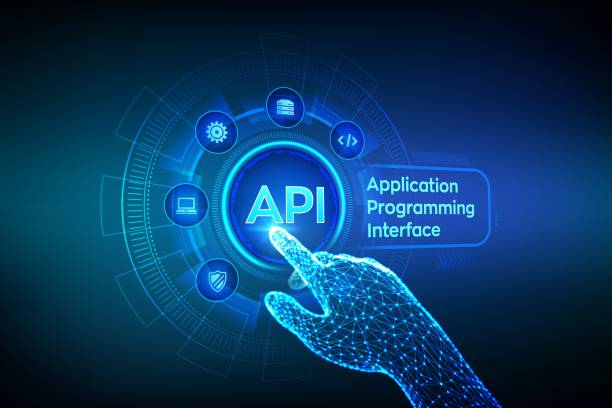
The future of artificial intelligence robots looks very bright and promising.
With the advancement of technology, artificial intelligence robots are expected to become smarter, more capable, and more versatile.
They will be able to perform more complex tasks, interact more naturally with humans, and operate more effectively in different environments.
However, the development of artificial intelligence robots also poses challenges, including ethical, social, legal, and security issues.
It must be ensured that artificial intelligence robots are developed responsibly and ethically and that they are used for benevolent purposes.
AI robots are constantly evolving, and new features are added every day.
Also, attention should be paid to the impact of artificial intelligence robots on the labor market and planning should be done to deal with the possibility of job loss by humans.
Education, creating new job opportunities, and providing social support are among the measures that can help reduce the negative effects of artificial intelligence robots on the labor market.
Wired publishes good articles on artificial intelligence robots.
Types of Artificial Intelligence Robots by Application
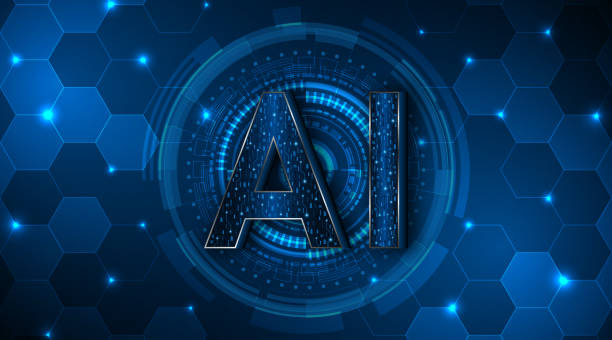
Artificial intelligence robots are divided into different types based on their application.
Some of these types include industrial robots, medical robots, service robots, military robots, and educational robots.
Industrial robots are used in factories to perform repetitive and dangerous tasks.
Medical robots are used in hospitals to assist doctors in diagnosing diseases, performing surgeries, and caring for patients.
Service robots are used in hotels, restaurants, and shops to provide services to customers.
Military robots are used on the battlefield to perform dangerous and complex tasks.
Educational robots are used in schools and universities to teach various concepts to students.
Each of these types of artificial intelligence robots has its own specific features and capabilities and is designed to perform specific tasks.
With the advancement of technology, new types of artificial intelligence robots with more diverse applications are expected to be developed.
The development of AI robots is increasing today.
Ethical Challenges in the Development of Artificial Intelligence Robots
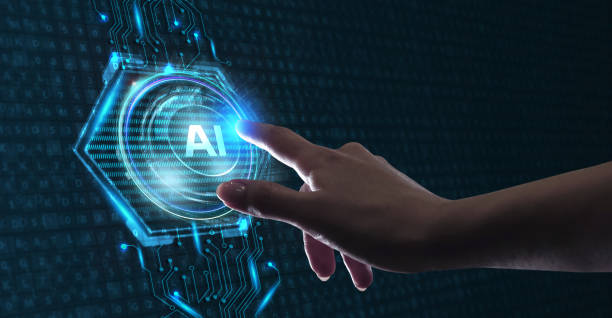
The development of artificial intelligence robots brings with it numerous ethical challenges.
One of these challenges is accountability.
If an artificial intelligence robot makes a mistake, who is responsible? The robot’s manufacturer, the robot’s user, or the robot itself? Another challenge is privacy.
Artificial intelligence robots can collect a lot of information about humans.
How can we prevent the misuse of this information? The third challenge is discrimination.
Artificial intelligence robots can make decisions based on the data they are trained on, which may be discriminatory.
How can this discrimination be prevented?
These challenges are just examples of the complex ethical issues that exist in the development of artificial intelligence robots.
To address these challenges, appropriate laws and regulations must be developed and it must be ensured that artificial intelligence robots are developed responsibly and ethically.
Here is a table showing some of the ethical challenges in the development of AI robots:
| Ethical Challenge | Description | Solutions |
|---|---|---|
| Accountability | In case of an error, who is responsible? | Establishing laws and regulations, creating accountability mechanisms |
| Privacy | How can we prevent the misuse of information collected by robots? | Developing data protection laws, using encryption, user education |
| Discrimination | How can we prevent discriminatory decisions by robots? | Using diverse and unbiased data, reviewing and evaluating algorithms |
Machine Learning and its Role in Artificial Intelligence Robots
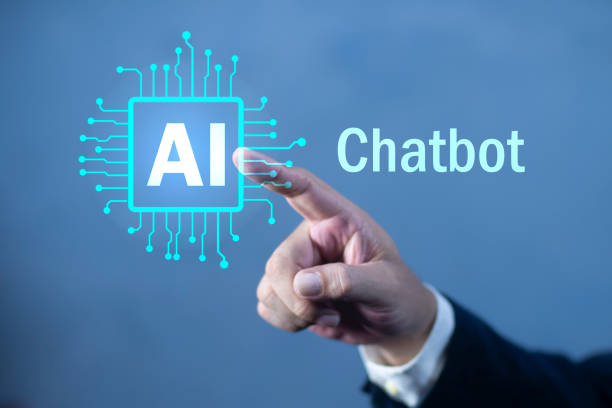
Machine learning is one of the most important sub-branches of artificial intelligence, which plays a fundamental role in the performance of artificial intelligence robots.
Machine learning allows robots to learn from data and improve their performance without explicit programming.
In other words, artificial intelligence robots, using machine learning algorithms, can recognize patterns in data, make accurate predictions, and make better decisions.
There are different types of machine learning algorithms, each of which is suitable for a specific type of problem.
Some of these algorithms include supervised learning, unsupervised learning, and reinforcement learning.
Choosing the right algorithm depends on the type of data and the desired goal.
The use of artificial intelligence robots in medicine is progressing day by day.
Are you annoyed by losing customers because of the old appearance or low speed of your online store? Rasaweb’s expert team solves these problems with a professional online store design!
✅ Increase customer trust and brand credibility
✅ Blazing speed and excellent user experience
Get a free consultation with Rasaweb right now ⚡
Case Study of Successful Artificial Intelligence Robots

Currently, there are numerous artificial intelligence robots that have achieved remarkable successes in various industries.
One of these robots is the Da Vinci surgical robot, which allows surgeons to perform complex surgeries with greater precision and finesse.
Another robot is called AlphaGo, which in 2016 was able to defeat the world champion in the game of Go.
This victory is considered a turning point in the history of artificial intelligence.
The third robot is called Watson, which was developed by IBM and is capable of answering complex questions in various fields.
Watson is used in the healthcare industry, customer service, and other industries.
These robots are just examples of the high potential of artificial intelligence robots.
With the advancement of technology, more artificial intelligence robots with amazing capabilities are expected to be developed.
AI robots can help humans solve complex problems.
How to Build an Artificial Intelligence Robot: A Step-by-Step Guide
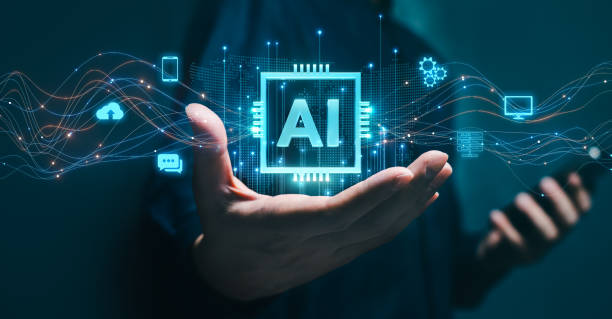
Building an artificial intelligence robot is a complex and multi-step process that requires knowledge and expertise in various fields such as robotics, artificial intelligence, programming, and electronics.
However, with the right tools and resources, a simple artificial intelligence robot can also be built.
The first step is to determine the robot’s purpose and application.
What is your robot supposed to do? What problems does it solve? After determining the goal, you need to prepare the required hardware and software components.
Hardware components include sensors, processors, actuators, and power supply.
Software components include operating system, drivers, libraries, and artificial intelligence algorithms.
After preparing the components, you need to connect them to each other and start programming the robot.
To program the robot, you can use various programming languages such as Python, C++, and Java.
After completing the programming, you need to test the robot and optimize it if necessary.
Google has good educational resources on AI robots.
Frequently Asked Questions
| Question | Answer |
|---|---|
| What is an Artificial Intelligence Robot? | It is a robot that uses artificial intelligence capabilities to understand the environment, reason, learn, and make decisions to perform complex tasks independently. |
| What is the main difference between a regular robot and an AI robot? | AI robots can learn and adapt to their environment, while regular robots usually operate based on fixed and pre-determined plans. |
| In what areas are AI robots used? | In areas such as industry (production lines), medicine (robotic surgery), services (customer support, smart vacuum cleaners), exploration (space and underwater), and entertainment. |
| How do AI robots learn? | They acquire new skills through machine learning and deep learning algorithms, by analyzing large data and identifying patterns. |
| Can AI robots have emotions? | Currently, no. They can identify or simulate emotions, but they do not have a real experience of emotions like humans. |
| What are the most important advantages of using AI robots? | Increased productivity, reduced human error, performing dangerous or repetitive tasks, and providing innovative and efficient services. |
| What challenges exist in the development of AI robots? | The need for large and high-quality data, algorithm complexity, ethical issues, cybersecurity, and high research and development costs. |
| Are AI robots dangerous to humans? | No, if safe design principles and ethical regulations are followed. Concerns are more related to social and economic impacts such as changes in the labor market. |
| What is an example of an AI robot in everyday life? | Smart vacuum robots (such as Roomba) that automatically map and clean the house, or smart voice assistants (such as Siri and Alexa). |
| How is the future of AI robots predicted? | They are expected to become smarter, more autonomous, and capable of more complex interactions with humans, and play a more prominent role in industry, medicine, transportation, and everyday life. |
And other services of Rasa Web advertising agency in the field of advertising
Intelligent marketing automation: a fast and efficient solution to improve SEO ranking with a focus on marketing automation.
Intelligent Custom Software: An innovative platform to improve customer acquisition by managing Google Ads.
Intelligent Google Ads: A fast and efficient solution to improve SEO ranking with a focus on proprietary programming.
Intelligent advertising campaign: Transform the click-through rate with the help of user experience customization.
Intelligent Sales Automation: Transform digital branding with engaging UI design.
And more than hundreds of other services in the field of internet advertising, advertising consulting and organizational solutions
Internet Advertising | Advertising Strategy | Advertorial
Resources
AI robots on Alibaba
,Artificial intelligence at IBM
,What is artificial intelligence?
,Artificial intelligence from SAS
? In today’s fast-paced and competitive world, a powerful online presence speaks volumes. Rasaweb Afarin Digital Marketing Agency, with expertise in SEO, content marketing and responsive website design, helps your business grow and succeed.
📍 Tehran, Mirdamad Street, next to the Central Bank, Southern Kazerun Alley, Ramin Alley No. 6

